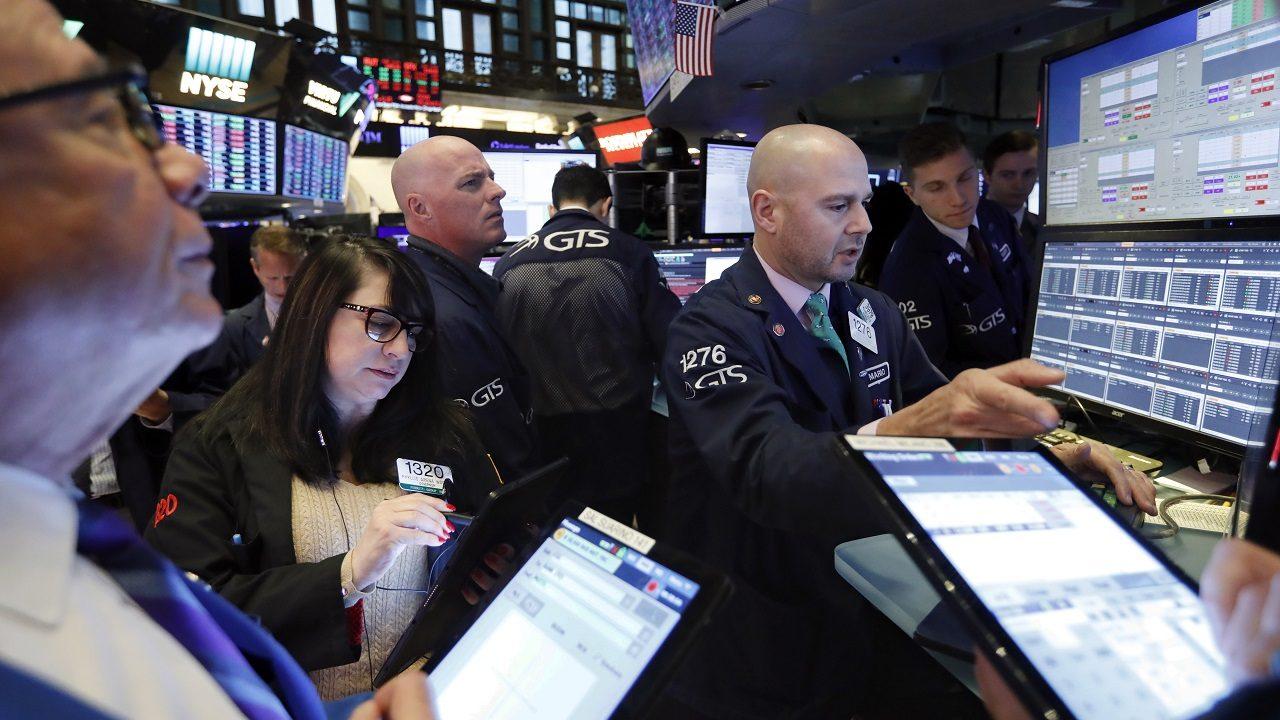What are the 5 biggest threats to the global economy?
Coronavirus and the increased chance of a U.S.-Iran conflict are among the biggest threats to the global economy
The outlook for the global economy, still recovering from a synchronized slowdown brought on in part by the U.S.-China trade war, is bleak.
According to a new report published by the Economist Intelligence Unit on Tuesday, global growth is forecast to be just 2.9 percent in 2020, near a decades low. The gloomy outlook, a reverse from the uptick in growth expected just a few months ago, has been brought on by renewed geopolitical uncertainty, along with the emergence of the deadly coronavirus.
While a growth slowdown could be cushioned by ultra-loose monetary policy among the world's major central banks -- the U.S. has historically low interest rates, and a number of countries have negative rates -- it also may trigger new debt crises in emerging markets, while limiting banks' powers to respond to recession risks.
These are the five biggest threats that could endanger the global economy:
1. U.S.-Iran conflict leads to a spike in global oil prices.
At the beginning of January, President Trump authorized a drone strike that killed Iran's top security and intelligence commander, Gen. Qassim Suleimani, a serious escalation of Washington's growing confrontation with Tehran.
While both sides are reluctant to engage in a full-out war (nor does Iran have the military or financial means to do so), tensions between the two countries remain exponentially high, complicating communication. There's also increased risk that Iran could launch a targeted attack against U.S. interests in the Middle East.

Mourners attend a funeral ceremony for Iranian Gen. Qassem Soleimani and his comrades, who were killed in Iraq in a U.S. drone strike on Friday, in the city of Kerman, Iran, Jan. 7, 2020. (Erfan Kouchari/Tasnim News Agency via AP)
"As a result," the Economist Intelligence Unit wrote in the paper, "the risk of an unintended slide into an escalating military conflict cannot be ruled out."
According to the study, there's a 25 percent chance the U.S. and Iran will be dragged into a direct, conventional war, which would have "devastating" consequences for the global economy. In particular, a war would almost certainly force the Strait of Hormuz, which roughly 20 percent of global oil supplies rely on, could be closed for an extended period of time.
2. A trade war breaks out between the U.S. and the European Union.
Tensions between the U.S. and EU have remained strained since mid-2018, when the Trump administration threatened to impose a 25 percent tariff on vehicles produced in Europe. While that particular threat seems to have receded, the U.S. is currently at odds with France over the country's digital-services tax, which targets American tech companies including Amazon, Apple and Google.
WHAT TRIGGERS AN ECONOMIC RECESSION?

French President Emmanuel Macron and President Trump at the Biarritz lighthouse, southwestern France, Aug. 24, 2019. (AP Photo/Markus Schreiber)
Because the U.S. and China signed a partial trade deal, it's likely that Trump will turn his attention to Europe this year, according to the paper. If the U.S. and EU are dragged into a trade war, the impact on the global economy would be severe, the report said. It estimated there's a 25 percent chance of a trade war breaking out between the long-time allies.
"Global growth would slow, inflation would rise, and consumer and business sentiment would drop," it said.
3. Coronavirus takes a lasting toll on the global economy.
China, the world's second-largest economy, has responded to a deadly outbreak of the coronavirus by all but halting its production of consumer goods like phones, clothing and automobiles; instituting mass quarantines in some cities and placing severe restrictions on an estimated 780 million people, the Verge reported.

In this Monday photo, a worker wears a mask as he pushes a trolley of tires manufactured at a factory in Qingdao in eastern China's Shandong province. (Chinatopix via AP) (Associated Press)
Multiple companies and countries are limiting travel to and from mainland China, evacuating citizens and scaling back operations.
The virus has killed close to 3,000 people, with more than 80,000 cases reported worldwide, mostly in China.
HOW DEADLY IS NEW CORONAVIRUS? IT'S STILL TOO EARLY TO TELL
"The global economic impact of the coronavirus outbreak is set to be more profound than that of severe acute respiratory syndrome (SARS), a similar virus that spread from China in 2003, owing to the much larger role that China plays in the global economy today," the report said.
Whether or not it has a significant impact on the global economy, however, depends on the length of its duration.
FED SAYS US ECONOMIC RISKS EASING BUT WARNS ABOUT CORONAVIRUS THREAT
Once China gets the disease under control, it will likely introduce strong fiscal and monetary stimulus to engineer a recovery in economic expansion, resulting in a rebound of growth worldwide. The EIU estimated a 20 percent probability that the virus will not be contained in China until mid-2020, and a 5 percent chance it will remain uncontained beyond this year. If it spreads further globally, the EIU will adjust its global real GDP outlook below 2.5 percent this year.
4. Debt burdens cause a recession across emerging markets.
A decade of low interest rates has caused global debt levels to rise, with external debt levels now significantly higher than they were in 2009 in some markets. The level and risk profile of corporate debt has also risen, particularly in the U.S., the report said.
"As a result, global growth prospects have become more vulnerable to a change in financial conditions, such as changes in US interest rates or financial market risk appetite, which could rapidly translate to higher funding costs for indebted countries," the report said. "This occurred in 2018, when rising US interest rates and a strengthening US dollar against other currencies caused widespread currency volatility among emerging markets, triggering currency crises and severe recessions in Turkey and Argentina."
5. Hong Kong protests cause an exodus from Asia's biggest financial center.
Pro-democracy protests began in Hong Kong during the summer over a now-shelved bill that would have allowed the extradition of suspected criminals from Hong Kong to mainland China, where the courts are controlled by the Communist Party.

Protestors light their torches during a peaceful rally in central Hong Kong's business district, Monday, Oct. 14, 2019. (AP Photo/Felipe Dana)
The EIU forecast a "distinct chance" the protests flare up again, if civil rights appear to be under attack. And if tensions continue to rise, there’s a possibility that China could respond to the chaos and mounting pro-independence sentiment in Hong Kong by suspending the "one country, two systems" mode of governance. (Hong Kong, a former British colony, was returned to China in 1997 under an agreement known as “one country, two systems,” which allowed the city to retain a "high-degree of autonomy" for 50 years. The agreement expires in 2047.)
Escalating unrest could lead to the deployment of the Chinese army from the mainland, raising the possibility of casualties.
"Either of these scenarios would cause serious and sudden economic dislocation, and threaten Hong Kong's status as the world's third-most important financial centre," the report said. "They would result in a swift departure of the foreign talent that lubricates Hong Kong's economy and prompt many, possibly most, foreign businesses in Hong Kong to close or relocate to other Asian cities, such as Singapore, Tokyo, Taipei or Bangkok."




















